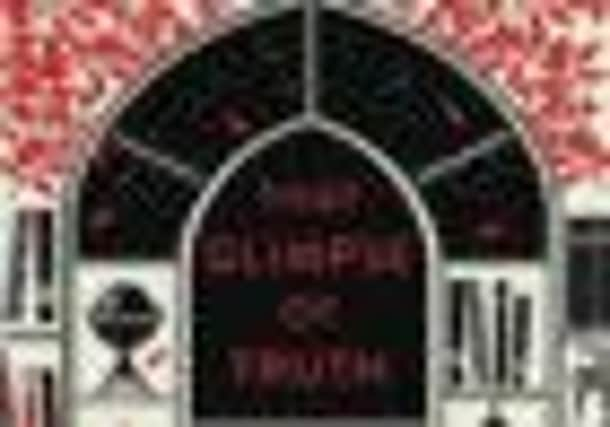Book review: That Glimpse of Truth by David Miller


That Glimpse of Truth: 100 of The Finest Short Stories Ever Written
David Miller (Ed)
H/Zeus, 942pp, £20
This is often true, sometimes not. Be that as it may, they often seem to suppose that there is a market for a short story anthology. This collection, with its agreeably modest subtitle – 100 of the finest, not the hundred finest – is, they proclaim, “the perfect Christmas gift”. Perhaps. It weighs in at just under 4lb on our kitchen scales, is too heavy to hold comfortably, and therefore not a book to read in bed. The contrast between its bulk and the light and airy quality of many of the stories within it is comical.
Advertisement
Hide AdNobody will agree with the choices made by any anthologist. There are always favourites missing, others included whom one doesn’t think much of. This is par for the course. It seems odd to me, though perhaps not to others, that fully a quarter of the authors represented here are still alive, and most of them still working. Does this mean that the editor David Miller, a literary agent, thinks the recent decades a golden age for the short story? More to the point perhaps is the observation that stories by contemporary writers are often easily obtainable; many will still even be in public libraries.
Mid-20th century authors are in comparison poorly represented; there is, for example, nothing by HE Bates, William Sansom, Julian Maclaren-Ross, AE Coppard, or indeed, of a slightly later generation, nothing by Francis King or Alan Sillitoe, two recent masters of the genre.
A Scotsman reviewer is bound to remark on the thin representation of Scots. JM Barrie is here, also Muriel Spark and John Burnside, but there is no Scott, no Stevenson, no Buchan, no George Mackay Brown, no Iain Crichton Smith, no Elspeth Davie, no Alan Spence. Of course there are plenty of anthologies of Scottish short stories, so this doesn’t really matter much.
Still Miller has cast his net agreeably wide. The classic masters are almost all here: Guy de Maupassant, Gogol, Chekhov, Saki , Kipling. Maugham, Wodehouse, Hemingway and Fitzgerald. But there are agreeable surprises too. Not many anthologists would, I suspect, have included one of the “Just William” stories by Richmal Crompton (inset), but the one chosen is a gem.
There’s also a classic MR James ghost story, and the Brothers Grimm’s version of the Pied Piper of Hamelin. Crime is poorly represented: GK Chesterton is here, but not with a Father Brown story, and in general writers of crime fiction, even Simenon and Sciascia, are ignored.
Never mind. You can’t have everything, and there is much of excellence here. One purpose, or at least consequence, of anthologies like this must be to introduce readers to writers of whom they are ignorant or have only barely heard.
Advertisement
Hide AdVS Pritchett, for instance, was perhaps the finest English short-story writer of the generation after Maugham and Kipling, but I don’t think he is widely read today. In his excellent introduction Miller quotes Pritchett’s definition of a short story – or the kind of story he wrote himself, as being “something glimpsed from the corner of the eye, in passing.” That’s very good, though it doesn’t fit the anecdotal kind of story in which Maupassant and Maugham both excelled. Angus Wilson is another master of the short story currently in the shadows whom I am happy to see included. “Raspberry Jam” – as I recall, the first story he ever published – would not have been my choice as his finest, though it is good. I would have selected “The Wrong Set” or “What do hippos eat?”, wonderful evocations of shabby-genteel seediness in post-1945 London. “Saturnalia”, set in a Bayswater or Kensington private hotel in the early 1930s, is another gem.
Miller says he has tried “to reflect as many genres, as many moods, as many voices as I can curate, to show that a short story can do pretty much anything”. He adds: “Everything in this book is as good as it can get.” A bold claim, but fair enough, even if many of us could compile another selection of 100 stories which were every bit as good.
So one may give an approving nod to the publisher’s claim that this is “a perfect Christmas gift” – always providing that the recipient has wrists sufficiently strong to support the weighty volume.